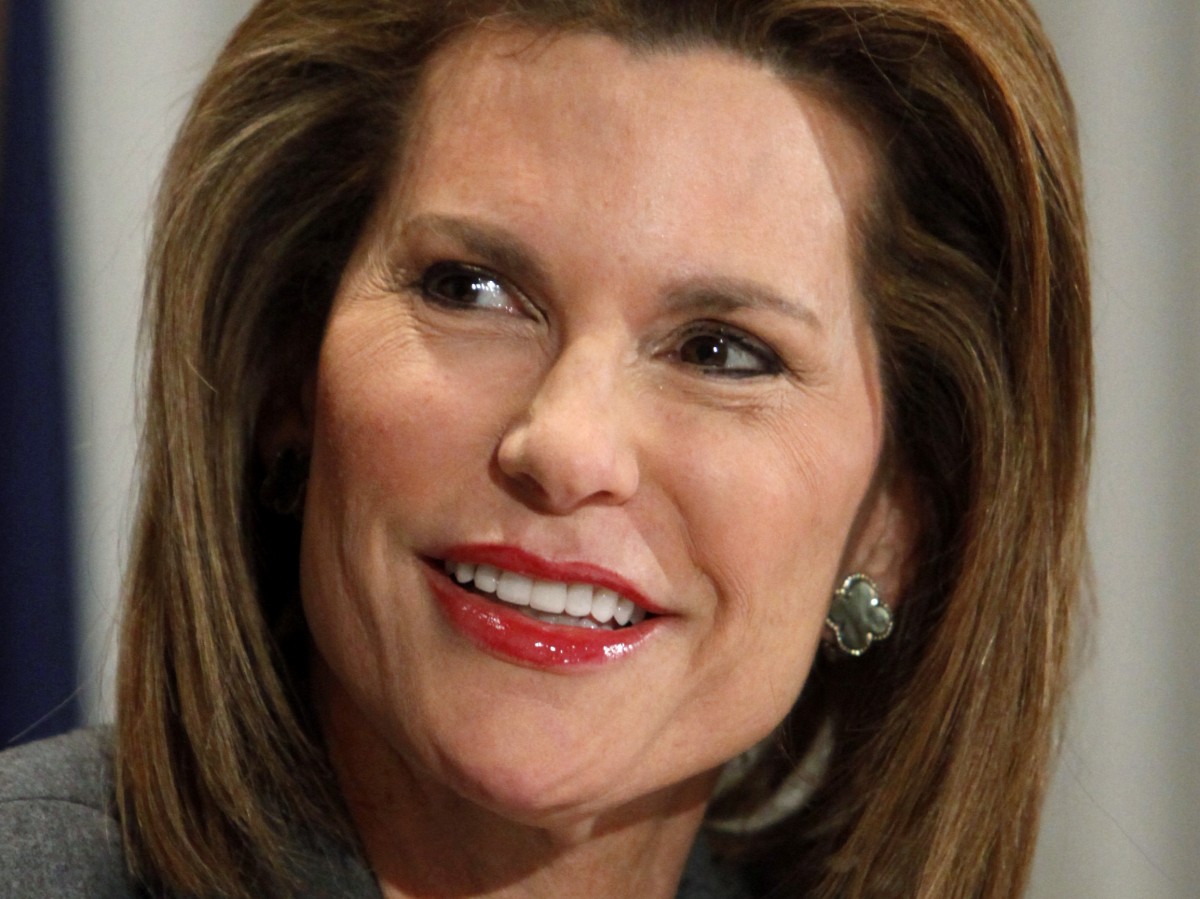
A year after the Susan G. Komen Foundation announced that the group was no longer providing grants for breast-cancer screenings at Planned Parenthood, the organization is still dealing with the consequences of its unpopular decision. The fallout persists even though Nancy Brinker, the foundation’s founder and CEO, decided to restore the Planned Parenthood grants almost immediately.
While the Susan G. Komen Foundation has acknowledged a drop in participants and donations, Brinker — who said she would step down after last year’s controversy — is still with the charity and, according to NBC News, received a 64 percent raise.
NBC News reported Brinker now makes about $684,000 a year, but a spokesperson for the charity, Andrea Rader, said Brinker’s raise occurred in 2010, before the controversy occurred.
“Our CEO pay reflects the comprehensive and global nature of our work,” she told NBC in an email. “We fund research; we grant to thousands of community health and breast cancer patient support programs; we advocate for access to cancer care through our public policy programs, and we’re active in breast cancer programs in 30 countries, with an emphasis on serving women in low- and middle-resources nations.”
Still, Ken Berger, president and CEO of Charity Navigator, a group that evaluates and rates charities, says Brinker’s salary is “extremely high.”
“This pay package is way outside the norm,” he said to NBC. “It’s about a quarter of a million dollars more than what we see for charities of this size. … This is more than the head of the Red Cross is making for an organization that is one-tenth the size of the Red Cross.”
Brinker is not the only head of a charitable organization to have a high salary. According to a May/June 2013 report published in the Charity Rating Guide and Watchdog Report, the highest-paid nonprofit CEO is Peter T. Scardino, who earns about $2.2 million while running the Memorial Sloan-Kettering Cancer Center.
Others on the list included Robert J. Beall, president and CEO of the Cystic Fibrosis Foundation who earned about $1.1 million; Brian Gallagher, president and CEO of United Way Worldwide, who earned $999,574; and Greg Bontrager, COO of the American Cancer Society, who took home $913,126.
Berger said that as news about Brinker’s salary gets out, others will likely have a negative reaction.
“When donors realize that (Brinker’s) salary is so high and so out of comparison to what it normally would be, I am certain there are going to be some donors who are no longer going to support this organization because they have lost trust in its decision-making,” he said to NBC News.
Low funds lead to cancellation of events
News of Brinker’s high salary follows an announcement from the Susan G. Komen Foundation that the organization had decided to cancel half of its 3-day races next year. The race’s participants walk a total of 60 miles and must raise at least $2,300.
The races were canceled in Boston, Chicago, Cleveland, Phoenix, San Francisco, Tampa Bay and Washington, D.C.
Blame for the cancellations was largely placed on the current state of the economy, but the charity acknowledged that last year’s Planned Parenthood controversy was also a factor.
In its 30 years in existence, the the Komen Foundation has held 138 races with an estimated 1.7 million participants from all over the world, raising more than $2 billion for breast cancer research and community programs.
According to NBC News, since last year, many Susan G. Komen affiliates across the U.S. have seen a reduction in the number of participants and a decline in the amount funds raised.
Registration for the race in Fort Worth, Tex., dropped from 13,780 in 2011 to 8,558 in 2013. Funds raised also dropped in the last two years by $400,000. The Seattle affiliate has reportedly estimated it will raise $500,000 less than it did in 2011 this year, and the New York City affiliate reported a 41 percent drop in donations raised.
Impact on research
Unable to collect as many donations as it has in the past, the foundation has cut back on its donations to grant programs.
Dr. Sandra Swain, the medical director of the Washington Cancer Institute at MedStar Washington Hospital Center, told NBC News that this year was the first time in 5 years she did not receive a grant from the Susan G. Komen Foundation.
Swain uses the money to help low-income women complete breast-cancer treatment. She said that she hopes the charity is able to recover from this public relations nightmare so it can once again fund programs like hers.
“The fact that less people are involved in the races, and they’re donating money to other sources, I think that really tells a lot. I’m really hoping that people will understand how important that these funds were for the breast cancer patients that Komen provided,” she said.
Lisa Bonchek Adams has raised more than $20,000 for the organization since she was diagnosed with breast cancer in 2010. She told the Daily Mail she believes that the organization’s biggest problem right now is Brinker.
“If Nancy Brinker were smart, she’d say, ‘Gee, I took $685,000 in salary last year. Whatever we need to make these events go on, how about I give up my salary for a year,’” Adams said. “She is their biggest liability.”


